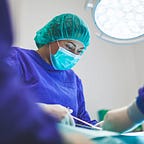Making a Career as a Plastic Surgeon
If you know where to seek, enrolling in a cosmetic surgery training school is simple. Opportunities for further study and training after completing a residency program are many. What follows are some of the most crucial details. The scope of a plastic surgeon’s practice extends well beyond breast augmentation. Liposuction, breast enlargement, and nose jobs are just a few of the procedures they provide.
To practice medicine, it is crucial to earn the appropriate credentials to practice plastic surgery. This work calls for extensive schooling, hands-on experience in the field, and professional accreditation. One must complete an undergraduate degree before moving on to a residency program in cosmetic surgery. Your credentials as a plastic surgeon will be considered complete once you have passed the USMLE and the American Board of Plastic Surgery.
Throughout medical school, you will engage in anatomy, physiology, biochemistry, pharmacology, and clinical rotations coursework. The science and practice of medicine will also be covered with its associated art and ethics.
After that, you’ll commit to a plastic surgery residency program that lasts for six years. The competition to get into this program is fierce. Top medical school grads are typically the only ones accepted into residency programs. Working long hours and performing emergency surgery are also realities of residency.
To enter medical school and pursue a career as a plastic surgeon, it is essential to do well on the Medical College Admissions Test. There are several ways that would-be physicians might better their prospects of entering the profession. Some medical schools have GPA and MCAT score requirements, but there are many additional variables to consider.
Recommendation letters from people who know the applicant well and can speak to their potential are sometimes required for admission to medical schools. These may come from either academics or members of the general public. In addition, future physicians who participate in extracurricular activities and volunteer work will give themselves a leg up in the competition. Biology, physics, chemistry, and mathematics are usually included in pre-med programs. Those interested in careers connected to surgery should do their best in these classes.
Candidates in the field of surgery should seek letters of recommendation from established plastic surgeons in addition to their formal education. Faculty or medical school committee members might write them letters of recommendation. Students in medical school should take advantage of as many elective surgical rotations as feasible.
You will learn all there is to know about starting a reconstructive and cosmetic surgery practice throughout your plastic surgery residency. You’ll get to practice many surgical techniques and see many unusual patients. Please note that a minimum of three years of general surgical training is required before applying for residency.
Plastic surgery residency programs and other types of residency programs exist. Plastic surgery-related tasks typically take more time to accomplish and pay more. You might also have to pass an exam to get your medical license.
Each of the various cosmetic surgery programs available today offers its advantages. A plastic surgeon, for instance, must complete five years of schooling before practicing the specialty full-time. Once a year, you’ll be placed under the supervision of a chief resident and a specific surgical service. Due to the size and diversity of the service, you will have enough opportunities to learn from and work with a wide variety of surgeons.
It doesn’t matter if you’re a recent medical school student or a seasoned physician; a fellowship in cosmetic surgery can help you grow professionally. You may gain insight from leading plastic surgeons and practice some of the most in-demand techniques during this training. This education features a substantial didactic curriculum that primarily emphasizes reconstructive and cosmetic surgery.
The Division of Plastic Surgery at Weill Cornell Medicine is among the best in the country. As a result of their training, residents can treat their patients the most excellent possible standard. Burns, cancer, and trauma injuries are only a few of the clinical conditions to which they are vulnerable. Numerous members of their clinical staff have earned prestigious research honors.
Six years are required to complete the Integrated Plastic Surgery Residency Program. Residents who have already finished their surgical training will be the target audience for this program, which has a required research year.
Many areas benefit from having access to more trained plastic surgeons despite the rising popularity of cosmetic surgery. The rising number of people 65 and older and the advent of useful new technology are contributing factors. As many as 5.3 million people had reconstructive plastic surgery in 2010. An additional seven million reconstructive plastic procedures are anticipated over the following two years.
Conditions under which plastic surgeons work range widely. Both university medical centers and private clinics employ some of these professionals. The work schedule is flexible. In addition, several of them serve as professors at universities that provide medical degrees. Some plastic surgeons focus solely on reconstructive treatments, while others are trained to perform a wide range of general surgical procedures.
